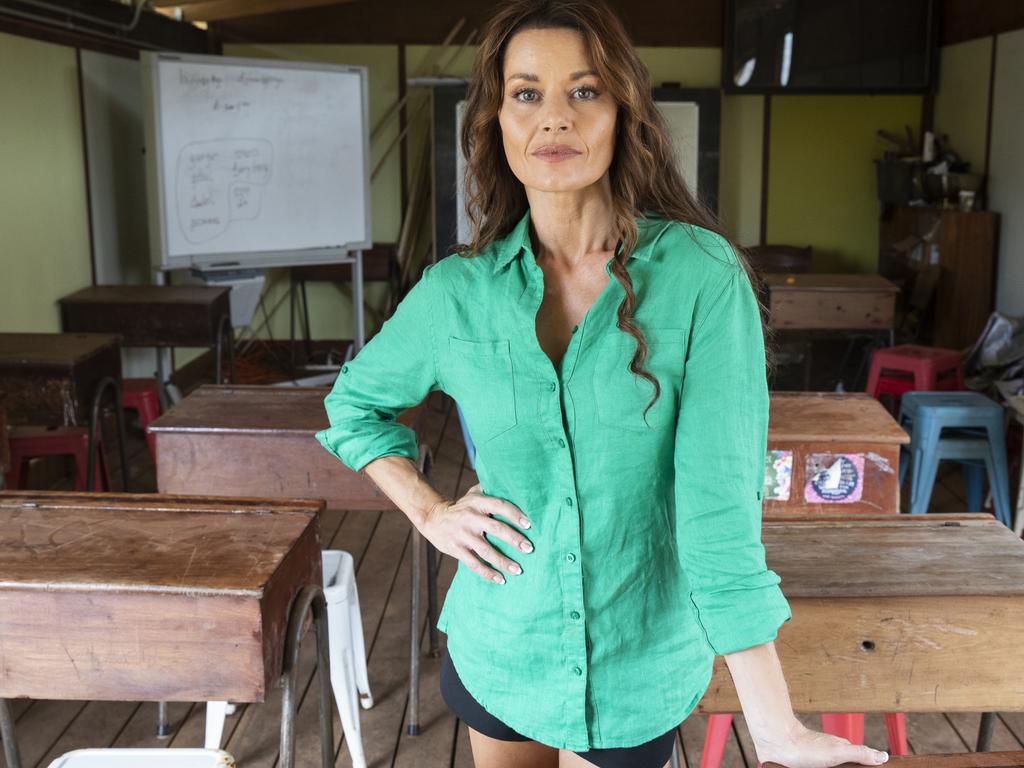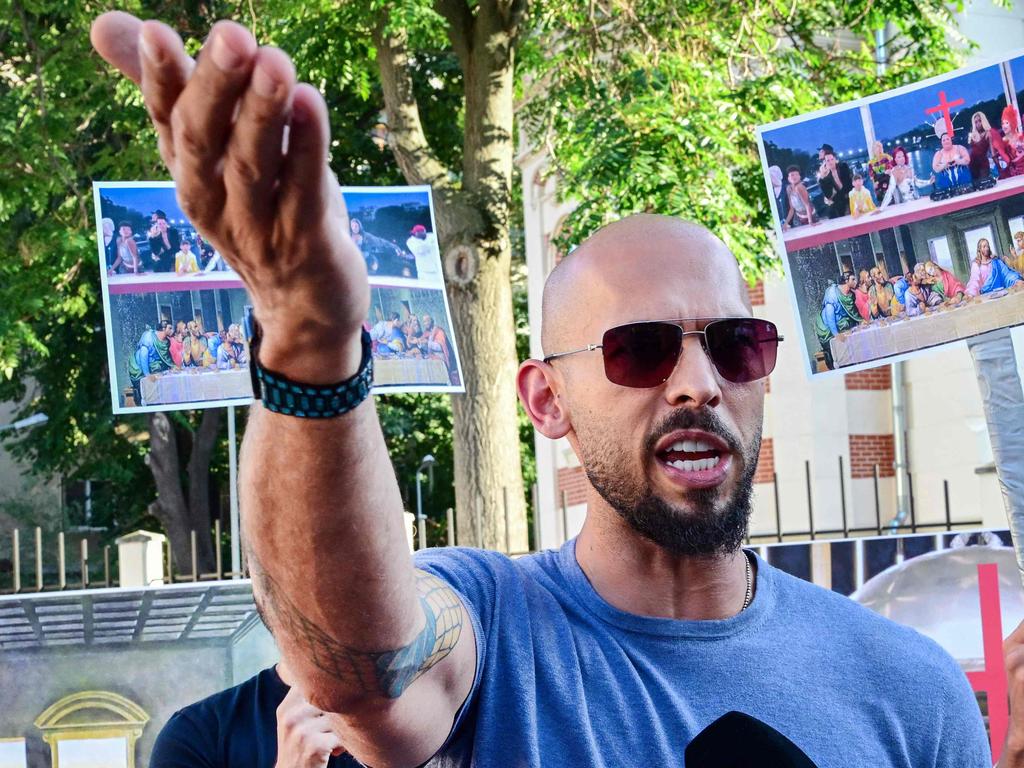Madeleine West reveals what kids are really doing on social media
Child safety advocate and actress Madeleine West has revealed what Aussie kids are really saying and doing on social media.
Teen girls are unknowingly creating illegal sexual content for strangers on social media, 10-year-olds are watching porn, while others are unaware that sending messages telling someone to “kill themselves” is a crime.
These are all real life confessions from kids, according to actor and child safety advocate Madeleine West, who visits schools across Australia as part of her work as a lead educator for Safe on Social.
The former Neighbours star, who was sexually abused as a child, is revealing what kids are really saying and doing on social media, in a bid to convince politicians to back a ban on social media for under 16s.
On Wednesday the bill passed through the lower house, with only 13 MPs voting against it.
It will now move to the Senate where it is expected to be amended with the support of the government to bolster privacy protections, including clearly banning tech giants from compelling Australians to hand over a digital ID or other government-issued documents like a passport or drivers license to access their social media accounts.

Ms West said she had spoken to thousands of children over the past three years and that most parents would have no idea what their kids were being exposed to on social media.
She said both boys and girls as young as 10 have revealed to her that they have watched porn, while kids are using the phrase “just go kill yourself” as a throwaway comment without understanding the weight of their words.
“The normalisation of such extreme language is really horrifying,” Ms West. “And this is from kids as young as eight.”
She also explains to kids what child sexual abuse material looks like.
“Young kids who are accessing Snapchat and TikTok are being lured into sharing images, and effectively that means they’re compelled to produce child sexual exploitation material,” Ms West said.

“When I tell them (in) the majority of images children are clothed, I will invariably have a clutch of girls, with scared expressions on their faces, asking me what that means?”
When she explains that an image of any child under the age of 16, in the company of someone performing a sexual act, performing a sexual act themselves, or posing in a sexual manner is child sex abuse material – and that can be a girl wearing a bikini doing a little bit of a bum pose, and pouting.
“I then watch the fear on their faces, knowing that someone has asked them for an image like that and they felt compelled to create it,” Ms West.
She has also seen first-hand how behaviour has worsened in schools over the past three years where she has been giving talks, blaming social media, especially manfluencers such as Andrew Tate, who has 10 million followers on X.

“There has been a decline in behaviour, decline in impulse control, decline in basic manners,” Ms West said.
“I’m seeing kids interacting with aggression, violence, threats, sexism. And this is directly linked to too much social media exposure. I like to call it the ‘Andrew Tate effect’.
“I’ve been witness to young boys in classrooms, Year 7 students, particularly making the Andrew type hand gestures, rating the images of the teenagers that are featured as a backdrop in my slide presentation, on the basis of rapeability or their ‘pump and dump’.”
She said girls either go silent when they hear the boys, or they join in making misogynistic comments themselves.
One 12-year-old told her she was so “f***ing boring” for suggesting she keep her phone out of her bedroom at night.
She said, as a parent to six children, she knows how hard it is to navigate the online space.
But the social media bill was an opportunity for parents to have big conversations with their kids, she said.




